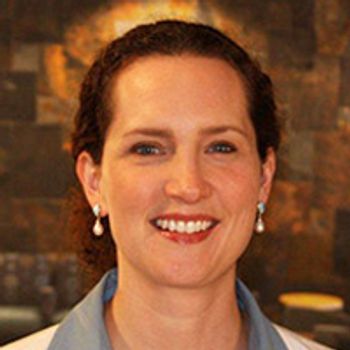
Karen Lee discusses the managment of immune-related adverse events in patients who are receiving immunotherapy treatments.

Karen Lee discusses the managment of immune-related adverse events in patients who are receiving immunotherapy treatments.

Recent research highlights the unmet psychological needs for older breast cancer survivors.

Expert Kristin Zorn, MD discusses the importance that genetics plays in oncology, and the why genetic counseling and testing are vital.

Richard Gralla, an expert in chemotherapy-induced nausea and vomiting (CINV), discusses how to best manage CINV in patients, including the importance of following guidelines.

Sherry Soeder, CNP, offers practical suggestions for better survivorship care that follow the standards of care from the Comission on Cancer.

"Real Housewives of Beverly Hills" star Camille Grammer discusses how she worked to diminish the shame behind gynecologic cancers.

Genetic testing can be used to stratify the risk of a patient experiencing complications during cancer, such as venous thromboembolism (VTE).

Immunotherapy expert, Dr. Jeffrey Weber, talks about the importance of early intervention for immune-related adverse events.

Survival in patients with lung cancer could be worse when those patients suffer depression symptoms.

Treatment for sexual pain in women who have been affected by cancer is an unmet need in both oncology and gynecology.

Stressing self care, a Mei Fu developed an online platform for prevention and treatment of lymphedema.

The Society for Gynecologic Oncology (SGO) released a toolkit of case studies and resources on genetic testing for healthcare providers, patients, and their families.

Survivorship expert Jennifer Klemp talks about optimal survivorship care, the contents of a survivorship plan, measurement of progress and the financial considerations.

Erin Kopp, NP, discusses the vital role that supportive care plays in oncology, especially for aggressive diseases such as lymphoma.

Using the COST questionaire (COmprehensive Score for financial Toxicity), researchers believe they can measure and score a patients risk for financial toxicity on a grading system.

The HHS announced a new policy for clinical trial registration and results, hoping to increase patient participation and information sharing.

Deborah Watkins Bruner, RN, PhD, FAAN, discusses the results of a trial comparing quality of life after conventional radiotherapy and after a hypofractionated schedule for men at low-risk for prostate cancer.


Patients with Medicare are delaying the recommended treatment with TKIs due to the medication's high cost.

Kaufman Cancer Center created an outpatient palliative care program by using resources that were already available inhouse. The Center has been awarded the 2016 ACCC Innovator Award from the Association of Community Cancer Centers for this initiative.

Self-reported smoking quit rates among hospital patients more than doubled after nurse intervention.

Mary Ellen Diotalevi speaks about her role as a nurse in a breast cancer center.

Between 2014 and 2016, the number of cancer survivors living in the United States rose by one million. This is just one of the many benefits the Cancer Progress Reports lists from cancer research.

ASCO clinical practice guideline offers suggests for treating adult cancer survivors with chronic pain.

Most people don't know much about kidney cancer at the time of their diagnosis. The Kidney Cancer Association wants to change that.

Olanzapine, an FDA-approved antipsychotic agent, has been shown to improve the prevention of nausea when added to a standard antiemetic.

Massage therapy may offer relief to patients suffering from chemotherapy-induced peripheral neuropathy (CIPN).

Couple's communication skills training can help couples facilitate important conversations when one partner has advanced cancer,

Palliative care access can be impeded by frontline cancer center office staff members if they do not understand the services.

African American breast cancer survivors experience some specific concerns and risk factors that healthcare practitioners should be aware of when developing survivorship care plans for this population.